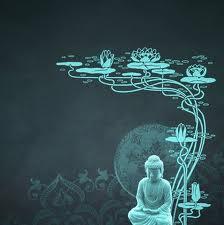Do Not Imitate, Knowing Yourself and Knowing Others

We have to be aware of how people tend to imitate their teachers. They become copies, prints, castings and it is like the story of the king's horse trainer. The old trainer died, so the king hired a new trainer. Unfortunately, this man limped when he walked. New and beautiful horses were brought to him and he trained them exquisitely, to run, to canter, to pull carriages. But each of the new stallions developed a limp. Finally, the king summoned the trainer and seeing him limp as he entered the court, he understood everything and immediately hired a new trainer. As teachers, you must be aware of the force of the examples you set. And even more important, as students, you must not follow the image, the outer form, of your teacher. He is pointing you back to your own inner perfection. Take the inner wisdom as your model and do not imitate his limp. Know your own mind and body and you will know others' as well. One's facial expressions, speech, gestures, actions, all ...

